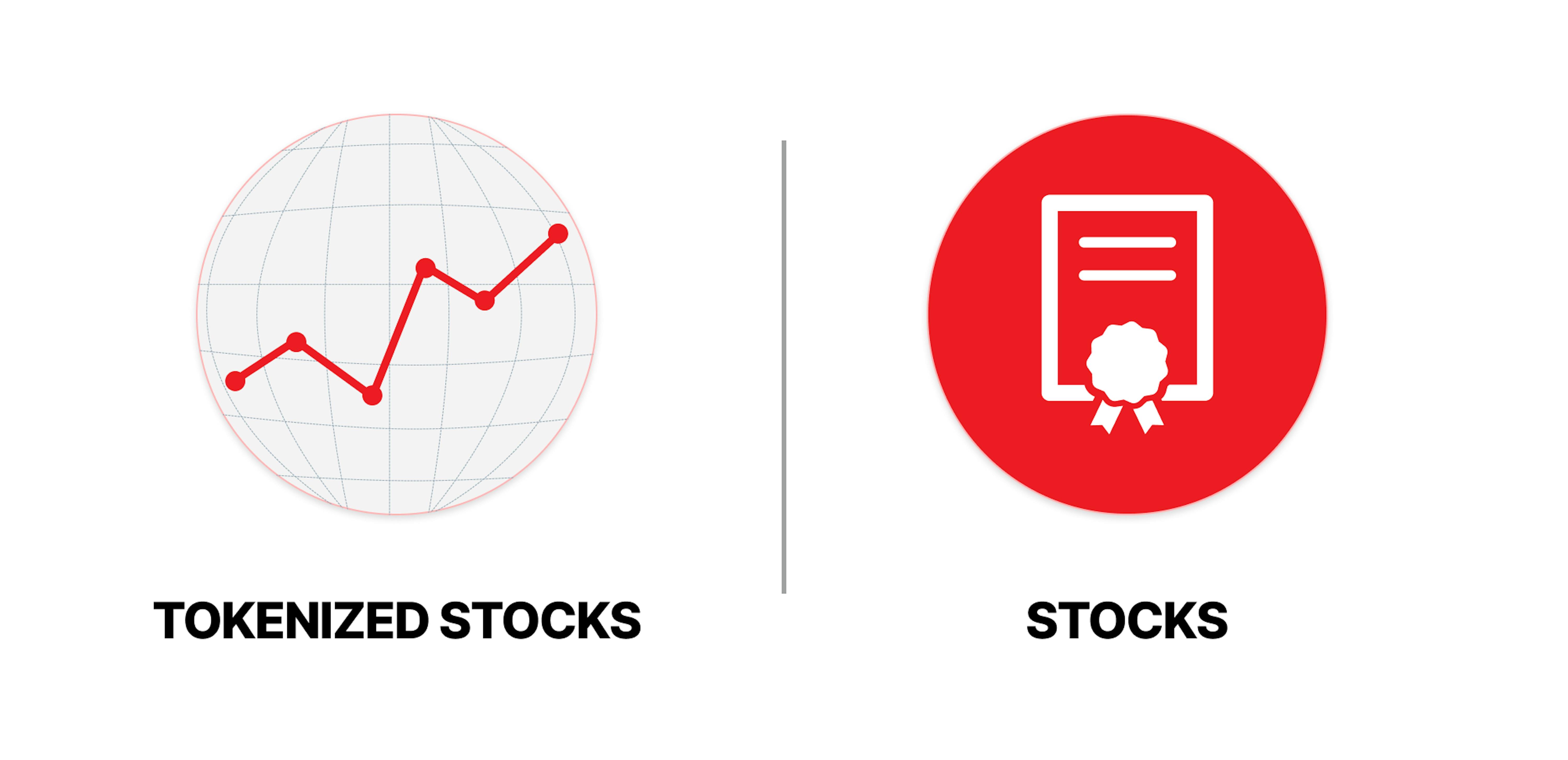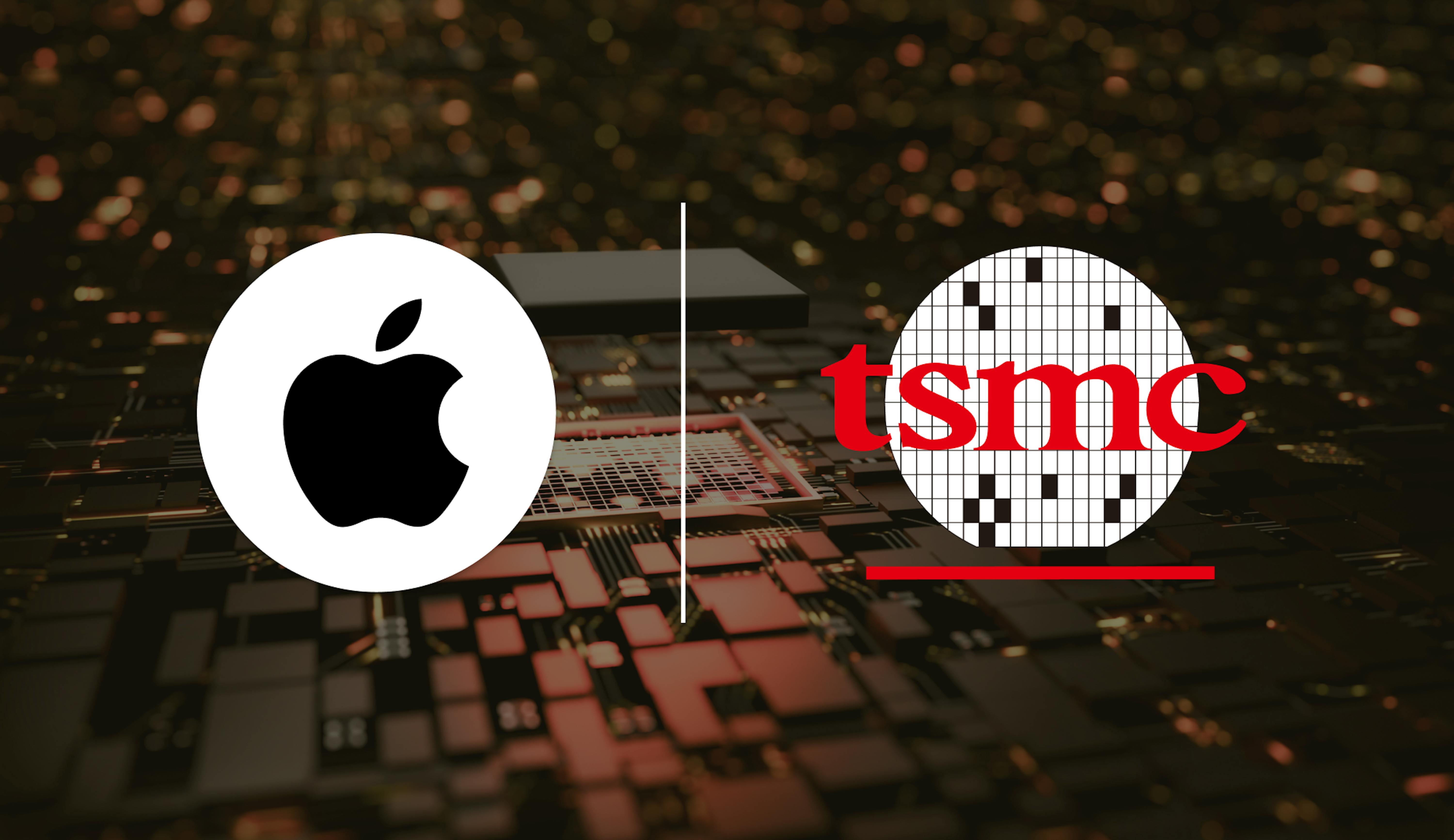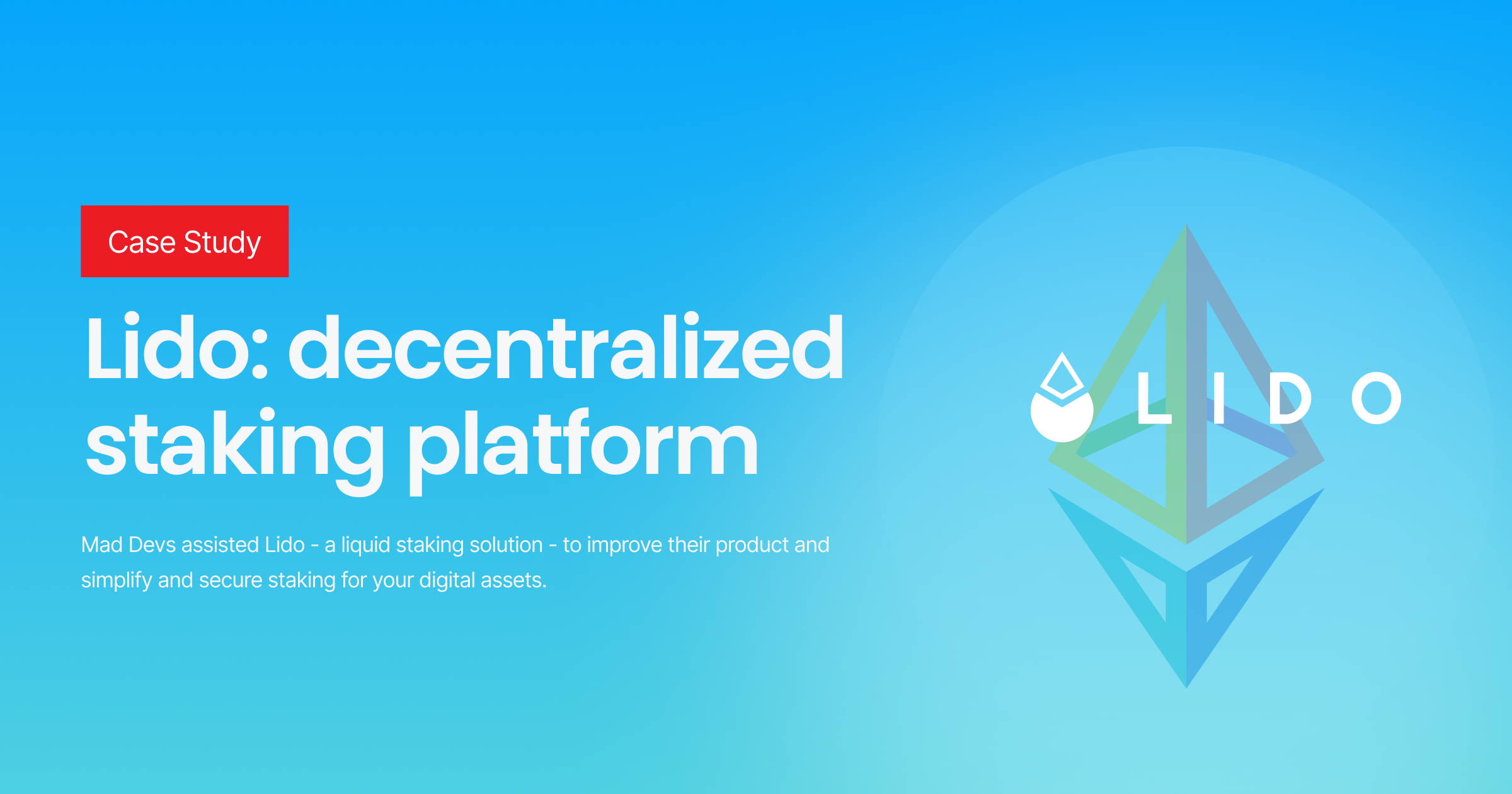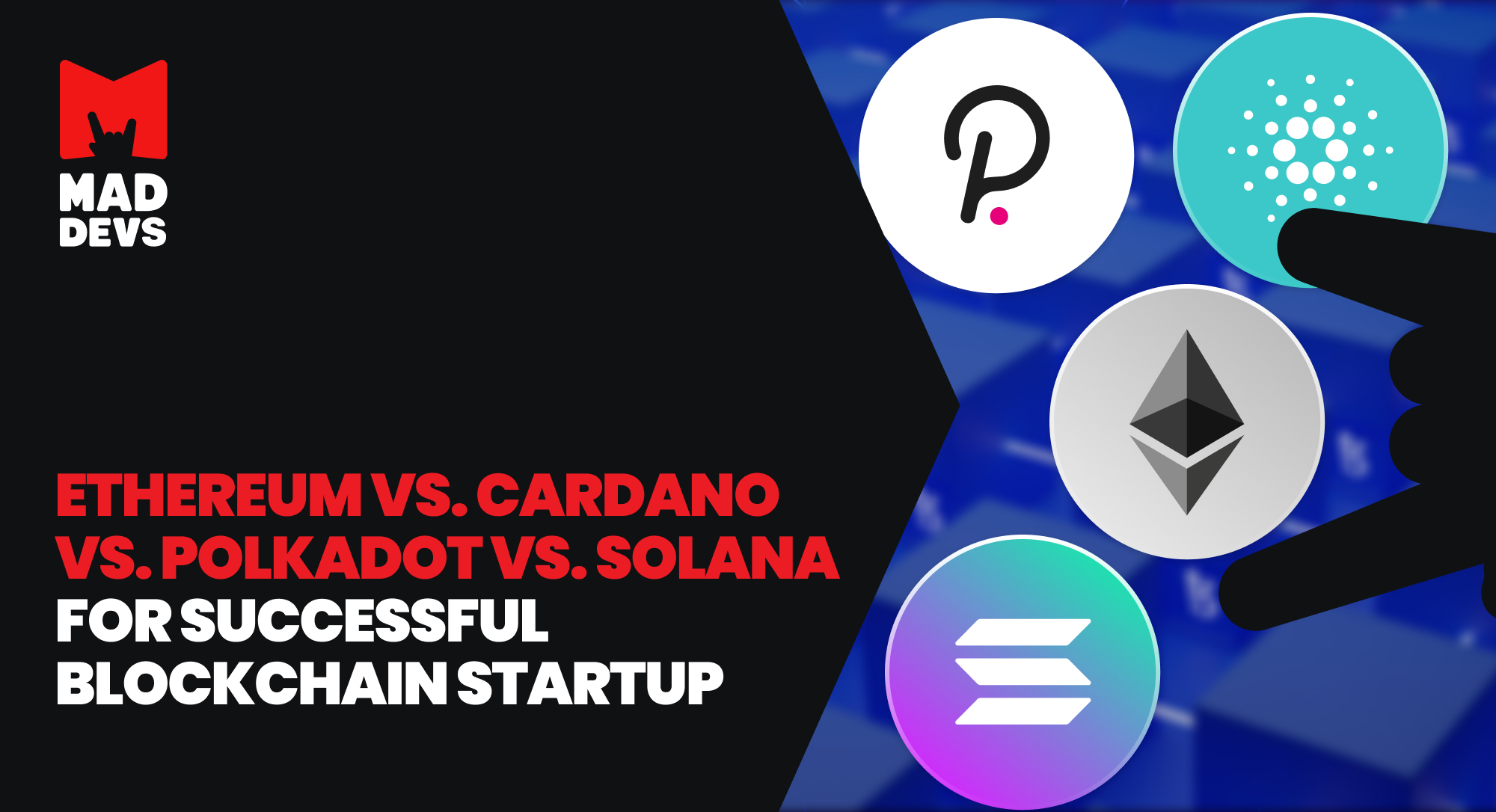Any asset can be summed up in a set of obligations clearly described in any standardized way. Compliance with these obligations by all parties makes such an asset valuable. In the past, only government financial institutions could be the compliance regulator, and only banks could be the method of interaction. If all of these institutions confirmed that all parties were meeting a given set of obligations, then, for example, a particular company's securities did have some value. Since these institutions are often the strictest and very conservative, we don't see the hundreds of different kinds of obligations that companies can issue. It all boils down to, albeit very empowering, traditional securities in the form of stocks, bonds, and so on, which are far from the most flexible and accessible.
But the rise of blockchain technology has provided companies with a much more flexible, transparent, and secure infrastructure, acting as regulators of much more diverse types of obligations. From bringing traditional securities into the blockchain network and greatly expanding the ability to interact with them creating obligations on the blockchain network with fundamentally new terms of interaction between a company's owners, employees, suppliers, investors, and customers. All such obligations written in the blockchain network, from the most traditional to the most progressive, can be represented in the form of crypto tokens, and the big trend that fundamentally changes the approach of companies and entire industries is called asset tokenization.
Besides tokenized currencies and tokenized securities, other assets, and the most famous example today is Non-fungible tokens (NFTs), through which tokenized works of art express their uniqueness in the Ethereum blockchain network. Or Utility tokens, where companies provide access to their product or service on a specific blockchain network by their token. Such companies could be decentralized autonomous organizations (DAO), decentralized marketplaces, or absolutely any company that decides to move any of its assets to blockchain and make a corresponding token.
We at Mad Devs have extensive experience in tokenizing assets and entire platforms. From developing flexible, stable, and secure EVM-compliant smart contracts and issuing tokens to developing large platforms supporting several different blockchain networks to store and exchange a wide variety of tokenized assets. If your company needs to tokenize any asset, we will do it for you in the best ways. Get a free detailed consultation from our experts.
And now, let's take a detailed look at the tokenization trend, the growth drivers of tokenization, and the most popular and promising areas of its application. We will talk about tokenized securities, in particular, tokenized stocks, which any company can issue to increase its investment opportunities in many ways. We'll show examples of platforms that issue tokenized stocks to other companies. And, of course, we will talk about the opportunities, advantages, and peculiarities of tokenized stocks and tokenization as a whole.
What are tokenized stocks?
Tokenized stocks are company stocks expressed digitally, more precisely in the form of crypto tokens, issued, stored, and distributed on the blockchain network. However, as we said earlier, it should not be misleading that tokenized stocks are a replacement for traditional stocks because, depending on the parent and partner companies, they can play completely different roles and provide investors with entirely different opportunities. To better understand this, let's take a closer look at the tokenized stock operation.
How do tokenized stocks work?
Companies such as Apple, Tesla, Google, Amazon, and other giants have traditional stocks. There are companies like CM Equity and DigitalAssets.AG that has an exchange license to trade stocks and hold them in their account. This allows their partners to issue tokenized stocks, which can be collateralized by traditional stocks in the same way the dollar used to be collateralized by gold.
And some companies issue tokenized stocks that are not collateralized by traditional stocks but only match their price on the stock exchange and are also stored and distributed on various blockchain networks. Which tokenized stocks are or are not collateralized with traditional stocks? Because it depends on stock platforms that allow them to be traded, we will detail it later. For now, let's compare the main possibilities of traditional and tokenized stocks so that you will immediately understand what to look for when investing, depending on your goals.
Tokenized stocks vs. stocks
Let's remember how common stocks work. You need a license to trade at the stock exchange, which allows you to buy, sell and hold stocks in your trading account.

Of course, this whole process can be greatly simplified by paying stockbrokers or entire agencies, who will set up your account, conduct transactions, and advise you on acquiring profitable stocks. Ownership of traditional stock provides much broader opportunities to participate in the company's development and generate profits.
However, this has several limitations regarding exchange hours, length of transactions, or additional regulation by various institutions. Moreover, there can be many additional complications for those outside the jurisdiction of the United States.
Many tokenized stocks may not require a license to trade, crypto exchanges operate around the clock worldwide, and transactions are much faster and avoid some redundant procedures. And yes, in this case, it does not matter at all whether you are a citizen of the United States or how direct access you have to the United States trading market.
But you may not get many opportunities to participate in the company's development as a shareholder vote and even receive dividends from the stocks in most cases. Instead, you get the opportunity to profit from the funds invested in stocks in a much more flexible, fast, and handy way.
Let's take a look at a comparison of the pros and cons of traditional stocks versus tokenized stocks.
| Type of stocks | Traditional stocks | Tokenized stocks |
|---|---|---|
| Advantages |
|
|
| Disadvantages |
|
|
Where can I trade tokenized stocks?
Okay, so if you've decided that tokenized stocks are right for you, the question arises, where and how do you buy tokenized stocks?
Well, there are several different blockchain networks and protocols that issue uncollateralized tokenized stocks, as well as specialized or universal crypto platforms that provide access to collateralized tokenized stocks.
You can read more about crypto platforms in our article White Label Cryptocurrency Exchange Software, in which we detailed the top crypto platforms and compared their features, advantages, and disadvantages.
But here we will talk about more specialized ones and answer the main question what are the 5 tokenization platforms?
Bittrex Global
The second largest but more popular crypto platform in the United States provides tokenized stock trading. It is a partner of originally Swiss Digital Assets AG, which owns traditional stocks of many big companies like Apple, Facebook, Netflix, and others. Therefore, all tokenized stocks of these companies are also collateralized by traditional stocks. It also provides the ability to receive dividends from the stocks purchased and shareholder voting rights with the consent of Digital Assets AG. The list of countries where this service is unavailable is more obvious than in FTX, namely Syria, North Korea, Iran, Cuba, and Crimean.
Bitpanda
Another platform that provides the ability to trade collateralized tokenized stocks and more. Its subsidiary Bitpanda Financial Services is a partner of CM Equity, which we mentioned earlier. The list of available tokenized stocks here is very big, so you can read more about it. They, like previous platforms, provide dividends for purchased stocks but keep quiet on the possibility of voting for shareholders. However, this platform has less stringent KYC and AML requirements and also does not give an unambiguous list of countries where it is blocked, which may be good news for many.
Currency.com
Okay, here we have some pretty interesting representatives. First of all, this is the first fully regulated platform for trading a wide variety of tokenized assets. Most tokenized stocks here are not collateralized by traditional stocks but only show their value. However, their list is mind-boggling. There are large company stocks, USDX, SP35, FR40, NL25 indices, gold, Brent crude oil, silver, palladium, natural gas, government bonds, and more.
Synthetix
Now let's go in a little further, but it wouldn't be right to get ahead of it. Synthetix is not an exchange but an Ethereum-based protocol that allows the issuance of uncollateralized tokenized stocks tied to the price of traditional stocks. But what is a disadvantage for one is an advantage for another. Synthetix shows the value of traditional stocks in the underlying asset of the synthetix token, whose primary trading platform is Kwenta. However, you can easily trade tokenized stocks of large companies on platforms like Curve and Uniswap, gaining enormous flexibility in asset trading and the lowest possible restrictions. All of this is due solely to the binding of traditional stock prices and the use of the Ethereum blockchain.
Actually, we have an excellent article about Ethereum, more precisely about Ethereum Virtual Machine or EVM, which is responsible for most of the trends on the web in the last few years. From the fundamental overhaul of the network structure, industries, and companies, to the multi-million dollar pixel kitties.
Tokenization market
Tokenization is actively developing, giving fundamentally new or significantly improved investment opportunities. The entire tokenization market as a whole expects great growth. According to Markets and Markets, it is expected to grow from USD 2.3 billion in 2021 to USD 5.6 billion by 2026 for various assets. In addition to the trend for tokenized stocks and bonds, there are several other noteworthy ones.
Tokenization of previously un-traded or undervalued assets
The trend toward tokenization of artworks has turned the media space upside down and given artists and entire companies the ability to protect their works from theft and copying, even to add value to limited editions. According to The Business Research Company, only this market segment capitalization is expected to grow from $21.33 billion in 2022 to $82.43 billion in 2026.
Since the visual arts were affected the most, as they are the least protected, this trend could be observed by everyone there. However, it is obvious that the next turn is for gaming, video, and music content, the appearance of examples of which we strongly recommend monitoring in the media space.
There are also less hyped but actively developing options for using tokenization in various industries, like real estate. The idea is to transfer the value of a physical asset into tokens that the investor can partially purchase. For this, they will receive rewards proportional to their investment, such as rent or dividends from the growth in the value of the real estate. Tokenization makes much of this possible, more reliable, and transparently regulated.
For example, companies like DigiShares, ArrivedHomes, and RealT have already discovered this trend and offer various real estate tokenization solutions, which will become more popular. So you don't have to look only at the areas where tokenization has already shown big numbers but at any other areas, even the most unexpected ones. After all, you can tokenize absolutely any asset, and that's the key idea.
Another industry where tokenization is gaining momentum and is taken seriously by the biggest players is transportation. The automotive conglomerate Mercedes Benz AG is issuing its crypto token, Mobicoin. It will be given to its customers for eco-driving, which will be determined by collecting data from the vehicles. Green driving refers to whether or not a car is left running, how fast they drive and how smoothly they enter corners, and more. The Mobicoins can be used to get VIP tickets for the Stuttgart Open under the sponsorship of Mercedes-Benz or Berlin Fashion Week events and can also be exchanged for fiat currencies.
Institutional adoption and trading of digital tokens
It is also worth noting that even less flexible entities, such as government institutions that develop models to regulate tokenized assets and traditional institutions that issue tokenized securities, bonds, and credit facilities, are subject to the tokenization trend.
An example is the Austrian government, specifically the FMA, which since 2018 has allowed cryptocurrencies at the state level and regulated ICOs and ITOs. It makes a highly favorable environment for doing business using tokens.
Another example is the World Bank, which has not only worked out very detailed regulations on the use of tokens but also provides loans for companies that seek to solve the environmental problems created by the active use of blockchain. All of this tells us that the big players are serious and that investors should watch their actions.
However, investing is a very complex topic, especially in something new, so we asked an expert in this field to help dispel doubts about some points and, on the contrary, to advise what you should pay attention to.
Is tokenization a good investment?
Almost any asset can be a good investment with the right approach. It depends mostly on why you are investing your money.
Suppose you have a company that wants to expand the way it invests, expand the use of valuable assets, or create new assets to provide separate services. In that case, tokenization is something that has limitless possibilities and is only limited by your imagination.
You can tokenize your company's stock to allow the most significant number of potential investors to interact with it. If your company is not public, you can issue your token, giving you the right to access the resources, products, and services your company provides. This will allow you to create additional exclusivity for your brand and provide a more transparent, flexible, and secure way for employees or customers to interact with the company.
So there is no doubt that with a clear definition of objectives and the right choice of technology, you will definitely benefit from tokenizing certain company assets.
If you are interested in investing and think big companies are one of the most reliable or profitable things today, you are not far from the truth. Indeed, only precious metals under the mattress are more reliable and only the riskiest assets with the most ambiguous potential, in both the good and the bad sense, are more profitable. In contrast, the assets of large companies take an ideal position between these extremes. They are too big to disappear in the wink of an eye, and you're sure to know when it's time to sell the assets sooner. At the same time, large companies have enormous potential to continuously profit from their operations, saving you from having to spend most of your life building a similar one from scratch or working there to get your check from them.
In turn, tokenized stocks of these companies are a great way to start investing in them if you have limited jurisdiction, time, or money. That is, you can afford to profit from them if, even in your country, such operations are not available and the services of intermediaries take too much out of you. Or if you want to do everything yourself, but you are not yet good enough at it and have little start-up capital and only a few hours after the actual job.
If you don't know whether you should tokenize your assets or which assets to tokenize, get our free consultation. Our Delivery Managers will take a close look at your business and provide you with the most profitable solution to unlock the potential of your assets for transparent, flexible, and secure operation.
What to choose between traditional stocks, collateralized tokenized stocks, or uncollateralized tokenized stocks?
It all depends on your goals. First of all, you have to ask yourself, how fundamental is it that I have the most control over the company and the methods of management? If this aspect is the most fundamental for you, and you are willing to spend more money and time on it, then traditional stocks are definitely your choice.
If you would like to have this opportunity but not so much that you would overpay for it with your time and money, and you definitely need to get additional opportunities to profit from owning stocks, then collateralized tokenized stocks should appeal to you.
But if you want to profit in the fastest and most comfortable way possible, and if the flexibility of transactions and minimal regulation is a priority, then uncollateralized tokenized stocks will give you a lot of space to move.
How to make the tokenized stock list?
The question may arise as to which are the best-tokenized stocks to invest in? Answering this question can be much more difficult than it first seems.
It largely depends on how you answer the previous questions. If you chose collateralized tokenized stocks, now a lot depends on the platform because you can't keep stocks from FTX on Bittrex Global since the same Apple stock is different on those platforms, as are the trading conditions on the platforms themselves.
The same is true if you choose uncollateralized tokenized stocks. Although Synthetix stocks of the same Apple may trade on different platforms, there are other protocols on which uncollateralized tokenized Apple stocks are issued.
Suppose you have access to all of the platforms and want to try out the advantages and disadvantages of each one. In that case, first of all, one of your main reference points will be CoinMarketCup, which reflects in real time the different tokenized stocks from various platforms. Next, you should choose those companies whose performance analysis inspires the most confidence in their future capitalization growth or at least their stable holdings.
For example, Apple's M1 microchips have overtaken their competitors strongly in the relevant segment, which promises good sales of their products, which means growth of capitalization in the near future and, in turn, growth of stock prices. However, the semiconductor crisis may somewhat decrease the figures, preventing the company from producing and selling the desired number of devices. But not so much that the numbers would fall more than those of other manufacturers. The only thing that might interfere with the energy crisis could slow down TSMC itself. But this is unlikely, and even in this case, Apple and TSMC have an exclusive contract that specifies Apple's priority on chip production in the first place.
Thus, having such an analysis by your own awareness and consulting with professionals in investment, you can make a list of desirable and worthwhile companies to invest in at the moment. Now all you have to do is go to CoinMarketCup and see which tokenized stocks are best suited for you based on the exchange you choose and its operating conditions. Of course, this is a general example, but you must understand that investing is highly complex. Even with great tools that facilitate processes and reduce risks, no one can tell you what asset is worthwhile without an in-depth analysis.
Also, we advise looking at Swaperry, which is now very inexpensive but shows very optimistic dynamics. And other less popular but probably still big and influential stocks, like oil companies, require much more immersion in a particular industry than technology companies, which are today's rock stars, and everyone understands at least approximately how they are doing.

What are the challenges facing tokenization?
Any industry, especially a young one, is very much forced to move against the old ways and react to the changes that are taking place in the world. Of course, asset tokenization is necessary to improve existing financial systems, but it also provides enormous potential for fundamentally new ways to empower any company. But tokenization also has its own formative journey to take on several challenges. Let's look at them in a little more detail.
FTX and cryptocurrency crisis
FTX was a cryptocurrency exchange that was founded in 2019 by Sam Bankman-Fried and Gary Wang, no longer in operation. It was one of the largest cryptocurrency exchanges in the world, and it offered a wide range of trading products, including futures, options, and leveraged tokens. FTX was headquartered in the Bahamas but was unavailable to U.S. residents due to cryptocurrency regulations.
In November 2022, FTX filed for bankruptcy. The bankruptcy was caused by a number of factors, including a liquidity crisis, a possible hack, and the arrest of FTX founder and CEO Sam Bankman-Fried. The FTX bankruptcy had a significant impact on the cryptocurrency market, raising concerns about cryptocurrency exchanges' safety.
The collapse of FTX, the world's second-largest cryptocurrency exchange, has sent shockwaves through the crypto industry. The crash has raised questions about the stability of the entire market and has left many investors wondering what will happen next.
It is still too early to say for sure what the long-term impact of the FTX crash will be. However, it is likely that the collapse will have a number of negative consequences for the crypto industry.
- First, the crash is likely to lead to a loss of confidence in the crypto market. Investors who have lost money in the FTX collapse may be less likely to invest in cryptocurrencies in the future. This could lead to a decline in trading volume and prices.
- Second, the crash is likely to increase regulatory scrutiny of the crypto industry. Governments around the world are already concerned about the risks posed by cryptocurrencies. The FTX crash is likely to give them even more reason to crack down on the industry.
- Third, the crash could lead to the closure of other cryptocurrency exchanges. FTX was not the only exchange that was struggling financially. Other exchanges may be forced to close if they are unable to attract new investors or raise capital.
However, it is also possible that the collapse of FTX will not lead to a crypto winter. The crypto market has been through a number of crashes in the past, and it has always recovered. Additionally, there are a number of new technologies and applications being developed that could help to drive demand for cryptocurrencies in the future.
Ultimately, it is too early to say whether the collapse of FTX will lead to a crypto winter. The market must watch how investors react to the news and how regulators respond. If investors lose confidence in the market and regulators crack down on the industry, a crypto winter is a real possibility. However, if investors remain bullish on cryptocurrencies and regulators take a more hands-off approach, the market could recover relatively quickly.
It is too early to say what the long-term impact of the crash will be. However, it is likely that the collapse will have a number of negative consequences for the market:
- The crypto market could continue to decline, leading to more exchanges closing and investors losing money.
- The market could stabilize and start to recover, but it may take several years for prices to return to their previous levels.
- Governments could implement stricter regulations on the crypto industry, making it more difficult for people to buy and sell cryptocurrencies.
- The crypto industry could innovate and develop new ways to attract investors and grow the market.
It is impossible to say for sure what will happen next. However, the FTX crash is a wake-up call for the crypto industry. The market needs to address the concerns of investors and regulators if it wants to avoid further crashes in the future.
Regulation by states
One of the main challenges is the difficulties with state regulations.
Obviously, state regulation is needed to standardize operations, lead to legal liability to investors, and simplify the use of tokens relative to the jurisdictions of different countries. At the same time, visionaries and blockchain technology developers may see this as contradictory to blockchain principles. Especially in the case of excessive government regulation, there could be scenarios that inhibit the development of a technology that makes tokenization profitable or possible. Therefore, the tokenization trend needs to find a balance between regulation by the state, and technological and commercial markets.
Energy and environmental crisis
Also, a big challenge is the cost of fuel prices, as well as the use of huge amounts of fuel to generate the necessary electricity to keep blockchain networks running. Because of the high price of electricity, operations on many blockchain networks may be too unprofitable relative to the assets being transacted. And even if the benefits of blockchain operations are sufficient, the effects of blockchain operations can be extremely damaging to our planet. Therefore, global tokenization in the given environment could lead us to a huge ecological crisis.
However, there is already a more obvious solution for this. The Ethereum network took advantage of the transition to Proof-of-Stake, which reduces energy dependence and greatly increases the network's reliability and security. However, all networks need to switch to a Proof-of-Stake-like protocol for independence from energy resources and further development of the technology.
The antiglobalization trend
There is a lot of discussion about the term anti-globalization, which strongly contradicts the trend of tokenization at all levels, from technical to political. And even if many tend to overestimate this trend, it is obvious that the peak of globalization ended in 2008, with the global economic crisis. It made many companies move production to their own countries, eliminating supplier dependence. Governments began to implement privatization laws, restrictions on exporting goods, and so on.
All of this applies to the same extent to blockchain networks and tokenized assets. For example, suppose the United States is home to most of the validators of the Ethereum network. In that case, that could be a reason to make United States law the primary regulator of Ethereum transactions. It could make it very difficult for those not in that jurisdiction to access operations and therefore have a big impact on companies that tokenize their assets on the Ethereum network. Unfortunately, there is no specific solution for this, as this is a very complex phenomenon, and at this stage, it is necessary to observe and adapt to the changes.

Summary
Well, now you know enough about tokenized stocks to start delving into it. Just don't dive in fully. Find information resources that could tell you what might affect the prices of traditional and tokenized stocks. Identify some companies that inspire confidence and have solid technology and a reputation for withstanding even hard times. And then, you will be able to take advantage of tokenized stocks and related platforms fully.
Also, pay attention to the fact that tokenization is coming more and more, and even now, on one of the platforms we told you about, you can trade far more than just tokenized stocks. All possible assets will likely be tokenized soon, so pay special attention to companies that develop technologies that make it possible or companies like Ethereum.
And if you have an idea for such a project but don't know where to start, you can get our free consultation. We at Mad Devs have successfully developed large and complex blockchain-based and EVM-compliant platforms, including for FinTech. So we definitely have the expertise to share excellent practices or develop a perfect solution for you.
In the meantime, we wish you further gain financial intelligence, smart financial management, and profitable deals.











